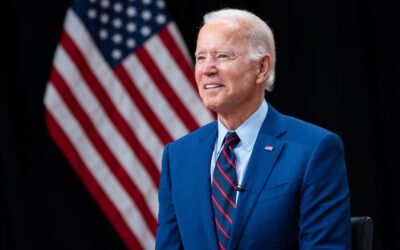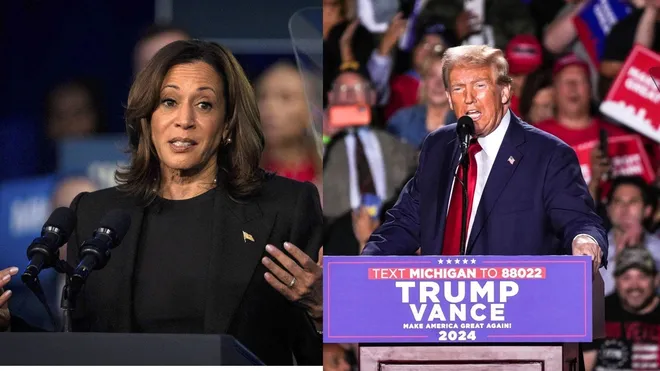Joe Biden: A Lifetime of Public Service and the Journey to the Presidency

Joseph Robinette Biden Jr., the 46th President of the United States, is a figure whose life has been defined by resilience, dedication, and a deep belief in the power of public service. With a political career spanning more than five decades, Joe Biden journey from a small town in Pennsylvania to the highest office in the land is both inspirational and historic.
Early Life and Education
Joe Biden was born on November 20, 1942, in Scranton, Pennsylvania, into a working-class Irish Catholic family. The eldest of four siblings, Biden’s early years were marked by financial struggles and a strong emphasis on hard work and perseverance. In the 1950s, his family moved to Delaware in search of better opportunities.
Biden attended the University of Delaware, where he majored in history and political science. He later earned his law degree from Syracuse University College of Law. Despite a lifelong struggle with a stutter, Biden overcame the challenge through determination and became known for his speaking ability and empathy.
Entry into Politics and Tragedy
Joe Biden political career began in 1972 when, at the age of 29, he was elected to the United States Senate, becoming one of the youngest senators in U.S. history. However, just weeks after his election, tragedy struck: his wife Neilia and infant daughter Naomi were killed in a car accident. His two sons, Beau and Hunter, were seriously injured but survived.
Despite the devastating loss, Biden chose to take his Senate oath beside his sons’ hospital beds and began commuting daily from Delaware to Washington, D.C., a habit that earned him the nickname “Amtrak Joe.” His dedication to family and public service won him respect across party lines.
Senate Career
Biden served in the U.S. Senate for 36 years, representing Delaware with distinction. He built a reputation as a pragmatic and experienced legislator, especially in areas of foreign policy, criminal justice, and civil rights. He chaired the Senate Judiciary Committee and later the Senate Foreign Relations Committee, playing key roles in shaping major legislation and U.S. foreign policy.
Notably, Biden was involved in the passage of the Violence Against Women Act in 1994, which provided protections and resources for victims of domestic violence and sexual assault. Though he faced criticism for his role in the 1994 Crime Bill, which contributed to mass incarceration, Biden has since acknowledged its shortcomings and advocated for reform.
2008: Vice President Under Barack Obama
After two unsuccessful presidential bids in 1988 and 2008, Biden was selected as the running mate of Democratic presidential nominee Barack Obama. The Obama-Biden ticket won the 2008 election, and Biden served as Vice President from 2009 to 2017.
During his vice presidency, Biden was a key advisor to President Obama, particularly on matters of foreign policy and economic recovery following the Great Recession. He also played a leading role in shaping the administration’s response to the 2009 financial crisis, advocating for the American Recovery and Reinvestment Act.
Biden’s deep empathy and personal experience with loss made him a compassionate figure during national tragedies, including the Sandy Hook Elementary School shooting in 2012. He also led the “Cancer Moonshot” initiative after his son Beau Biden died of brain cancer in 2015.
2020 Presidential Campaign
Following the tumultuous presidency of Donald Trump, Biden announced his candidacy for president in April 2019. His campaign centered on restoring the “soul of the nation,” promoting unity, rebuilding alliances, and addressing pressing issues such as healthcare, climate change, and racial injustice.
Despite a rocky start in the Democratic primaries, Biden’s campaign gained momentum after a decisive win in South Carolina. With broad support from African American voters and moderates, he secured the Democratic nomination and chose Senator Kamala Harris as his running mate.
In the November 2020 election, Biden defeated President Donald Trump in a contentious race marked by a global pandemic, record voter turnout, and widespread misinformation. He received over 81 million votes—the most in U.S. history at the time.
The Biden Presidency: Challenges and Achievements
Joe Biden was inaugurated on January 20, 2021, amid unprecedented security and a pandemic that had claimed hundreds of thousands of American lives. His early days in office were focused on stabilizing the country and delivering relief.
Key Accomplishments
- American Rescue Plan: A $1.9 trillion stimulus package aimed at providing economic relief to individuals, businesses, and local governments during the COVID-19 crisis.
- Infrastructure Investment and Jobs Act: A bipartisan achievement that allocated $1.2 trillion for modernizing roads, bridges, broadband, public transportation, and clean energy.
- COVID-19 Response: The Biden administration oversaw the rapid distribution of vaccines and efforts to reopen schools and businesses safely.
- Inflation Reduction Act: A landmark climate and healthcare bill designed to reduce prescription drug costs and invest in clean energy.
Biden has also focused on strengthening international alliances, rejoining the Paris Climate Agreement, and supporting Ukraine in its war against Russian aggression.
Ongoing Challenges
Despite these achievements, Biden’s presidency has faced significant challenges. High inflation rates, immigration issues at the southern border, and a deeply polarized political climate have tested his leadership. In addition, the withdrawal from Afghanistan in 2021, while ending a 20-year war, drew criticism for its chaotic execution.
Leadership Style
Joe Biden’s leadership style is often described as empathetic, measured, and collaborative. He emphasizes bipartisanship and believes in the traditional norms of democracy. His decades of experience in Washington have made him a skilled negotiator, but critics argue that his centrist approach sometimes falls short in the face of political extremism.
He also places a strong emphasis on personal connection, often recalling stories from his own life to relate to the American public. His ability to comfort those in grief and speak with authenticity has been a hallmark of his public persona.
Legacy and Future Outlook
As of 2025, Joe Biden’s legacy is still being written. Supporters praise him for restoring stability and decency to the White House, passing transformative legislation, and guiding the country through multiple crises. Detractors question his handling of certain policy areas and point to his age—he is the oldest president in U.S. history—as a concern for future leadership.
Nonetheless, Biden has signaled his intention to run for re-election in 2024, aiming to build on his administration’s accomplishments and defend democratic values. Whether or not he wins a second term, Biden’s impact on American politics, particularly during one of its most turbulent periods, will be remembered for years to come.
Conclusion:
Joe Biden’s life story is one of resilience, public service, and commitment to the American people. From personal tragedy to political triumph, he has consistently demonstrated a belief in unity, democracy, and the power of government to improve lives. As the 46th President of the United States, Joe Biden stands as a symbol of experience, compassion, and steady leadership in uncertain times.






